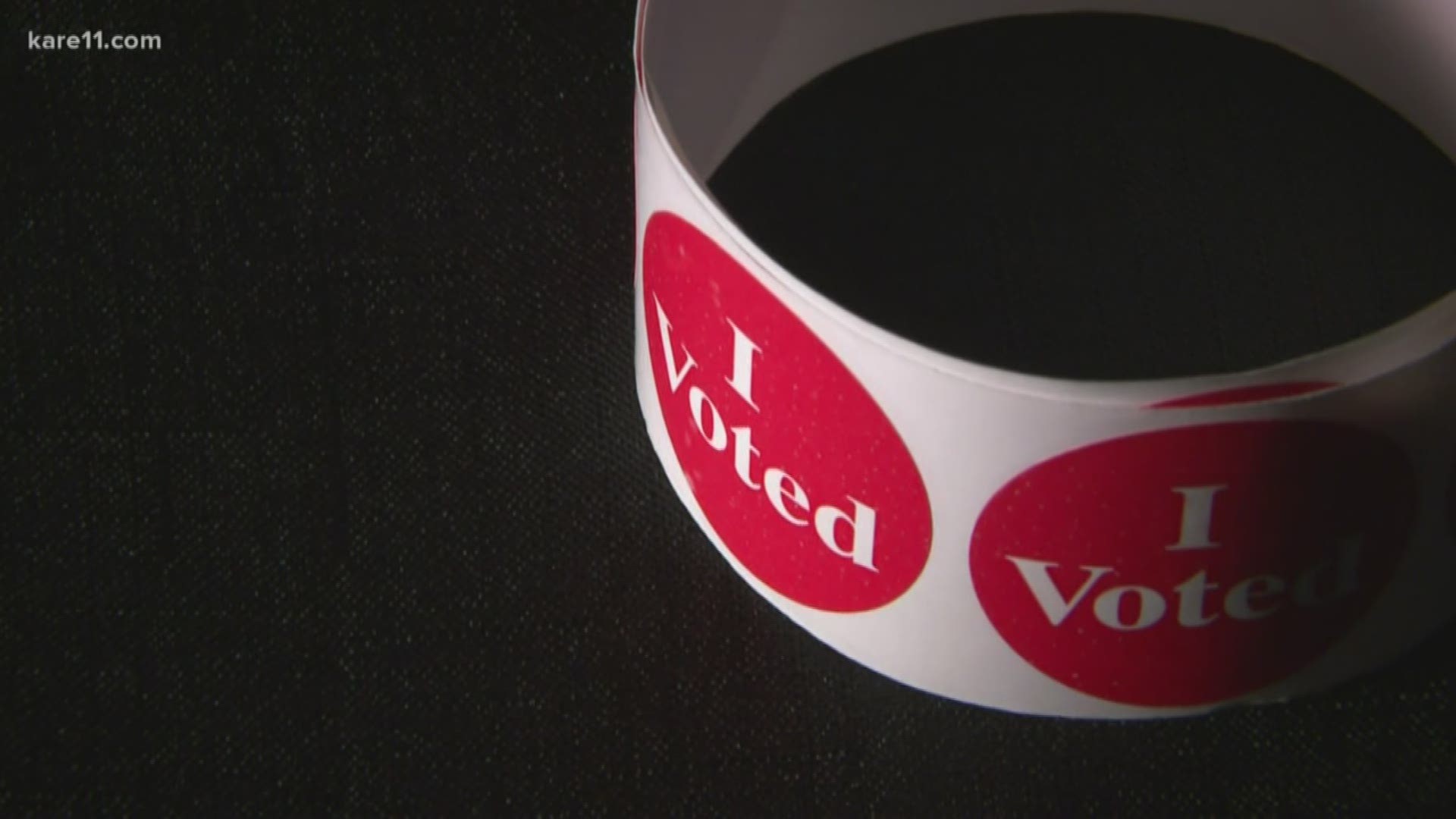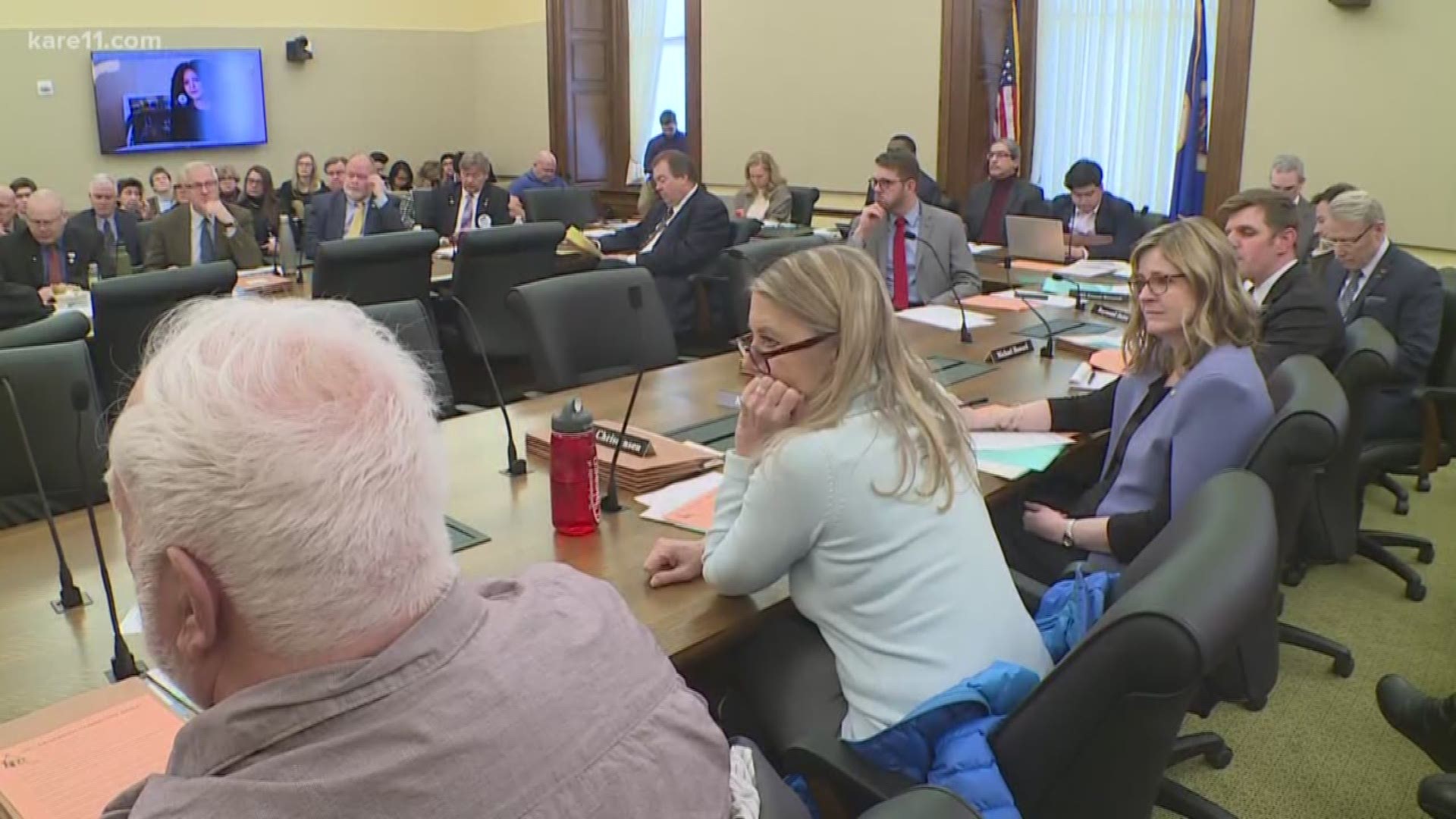MINNEAPOLIS — A group of reformed felony offenders have filed a lawsuit in an effort to get their voting rights restored immediately, instead of waiting until they're off probation.
If they prevail, Minnesota would follow the lead of states such as North Dakota, where people convicted of felonies are eligible to vote as soon as they're released from incarceration.
"The current system treats people who are on probation and living in the community as unequal to their neighbors, as second-class citizens for no rational reason," said David McKinney, staff attorney for the ACLU of Minnesota, which is assisting with the lawsuit.
"Many have never seen the inside of a prison. They are placed on extremely long periods of probation that can last for decades."
The case in point is Jen Schroeder, who was convicted of felony-level drug possession earlier in life. She has since earned college degrees and become a drug addiction counselor but is still serving a 40-year probation.
"That means I can’t vote until I’m 71 years old," Schroeder told reporters Monday.
"I’m proud I’ve turned my life around. I volunteer, I have a job, I pay taxes, I’m active in my church, I’m dedicated to making a difference in the lives of others."
One reason the ACLU is involved in the case is because the racial disparities in the criminal justice system has also resulted in a disproportionate number of persons of color losing their voting rights.
And yet it's not just an urban issue. According to the ACLU, that group of 52,000 Minnesotans still on probation include more people outside the Twin Cities metro than inside it.
Sitting on the sidelines during elections can be emotionally wrenching to those waiting to get their rights restored. Those "I voted" stickers remain elusive.
"When my children are with me, they ask me, 'Well dad, when are you going to vote? Where’s your sticker?' And, I have to explain to them that I can’t vote," Tierre Caldwell, another plaintiff in the case, explained.
Elizer Darris, a community organizer with ACLU and entrepreneur, said at age 35 he has never had a chance to vote because he's been on probation so long.
"I drive people to the polls -- literally, I drive people to the polls. I register people to vote. I volunteered with many campaigns. Yet when all is said and done, I can’t get that little red sticker," Darris said.
"It’s undemocratic to expect me to be in society, contributing to society, and not be a full member of society."
The state constitution makes it clear felony offenders are supposed to have their voting rights restored being punished for their crimes. And state statutes interpret that punishment to include probation, but the ACLU says prolonged denial of voting rights violates the due process and equal protection clauses of the U.S. Constitution.
"Minnesota has never articulated any justification for disenfranchising citizens who live in our communities following a felony conviction," Craig Coleman, a partner with Faegre Baker Daniels, asserted. Coleman is serving as pro bono co-counsel on the case.
We've seen bipartisan efforts at the Minnesota Legislature to restore the vote to those on probation, with some Republicans appearing with Democrats and advocates at Second Chance Coalition rallies. And the DFL-controlled House has passed a bill that would allow people to vote as soon as they are released back into the community.
RELATED: Lawmakers tackle probation system
But Republican leaders in both the House and Senate have consistently thwarted efforts by the reformers, arguing at times that the loss of civil rights is part of the punishment regardless of whether the time is being served behind bars or on supervised release.
"If the legislature takes this occasion to fix the problem, that would be welcome," Craig Coleman explained.
"But if they don’t that is the role of the courts and we believe we’ll ultimately prevail."
The named defendant in the lawsuit is Secretary of State Steve Simon, because he's tasked with the duty of enforcing Minnesota's election rules. In civil cases, he's represented by the attorney general's office.
Both Simon and Attorney General Keith Ellison have supported efforts to restore the vote to former offenders, but now they'll have to defend the current law in court.
The sheer number of disenfranchised voters has brought attention to Minnesota's sentencing practices. The state is an outlier when it comes to the length of probation times, sparking efforts at reform in that arena as well.


